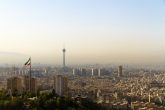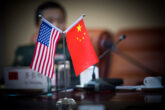October 29, 2018
How to tell if North Korea is serious about denuclearization
Since the Singapore summit between US President Donald Trump and North Korean leader Kim Jong-un in June, Pyongyang has made gestures and statements suggesting that it will curtail its nuclear-missile programs. However, in the absence of a nuclear deal between Washington and Pyongyang, the North’s nuclear arsenal continues to expand, and the regime continues to violate UN Security Council Resolutions that prohibit nuclear and missile-related activities.
With preparations for a second Trump-Kim summit underway, how should the international community determine what initial denuclearization steps really count? As Washington and Seoul engage with North Korea diplomatically, they have a rare opportunity to persuade the regime that surrendering its nuclear weapons and programs will in fact lead to a brighter future and eventual peace on the Korean Peninsula. But observers need to distinguish steps that are symbolic at best from those that demonstrate Pyongyang’s seriousness. Grabbing hold of whatever Pyongyang offers indiscriminately will only weaken Washington’s future negotiating position.
Before deciding what does constitute a meaningful or serious offer from North Korea, it is helpful to consider what does not. The broad targets of North Korea’s denuclearization should include: the regime’s fissile and thermonuclear material production programs, its nuclear weaponization program, its nuclear weapons and related missiles and other delivery systems, its proliferation programs, and its illicit trade and smuggling networks. Each element is comprised of various facilities, materials, and technologies. With that level of complexity, North Korea could divide each target into multiple steps to offer as bargaining chips, a tactic known as “salami slicing.” And while some initial steps in isolation may be noteworthy or even meaningful, they could actually become relatively meaningless depending on the context.
Read the full article in the Bulletin of the Atomic Scientists.
More from CNAS
-
“The Ayatollah Has No Clothes” – with Rich Goldberg and Richard Fontaine
Richard Fontaine is CEO of the Center for American Security, joins Call Me Back to assess the threat FROM Iran and the threat TO Iran. Listen to the full episode on Call Me ...
By Richard Fontaine
-
Lost Decade - The U.S. Pivot to Asia and the Rise of Chinese Power with Richard Fontaine
Richard Fontaine, CEO of the Center for a New American Security, joins Coffee & Conflict to discuss his book The U.S. Pivot to Asia and the Rise of Chinese Power. He dives int...
By Richard Fontaine
-
Sharper: Allies and Partners
Amid intensifying geopolitical challenges, the United States is finding new ways to address security issues by cultivating and strengthening alliances and partnerships. How ca...
By Gwendolyn Nowaczyk & Charles Horn
-
What Can the US Expect From Sri Lanka’s New President?
Washington views Sri Lanka as a “lynchpin” of its Indo-Pacific strategy and seeks a partner committed to strengthening the democratic process and economic governance while pro...
By Keerthi Martyn




